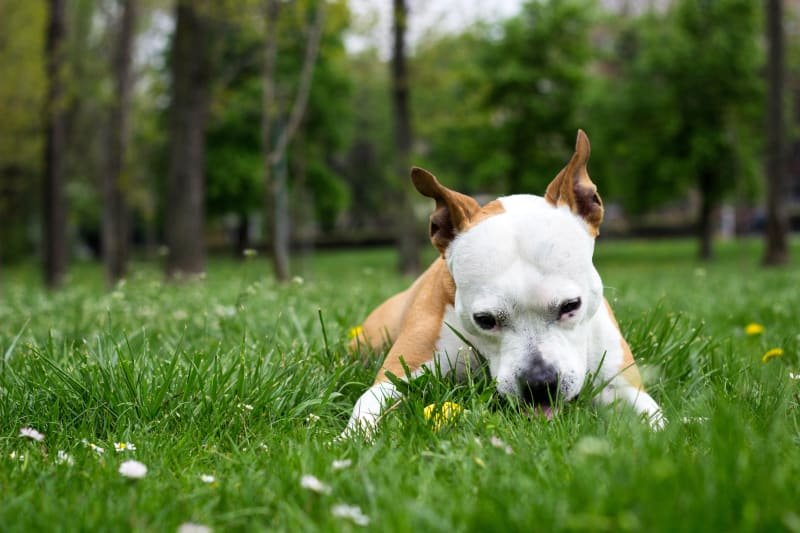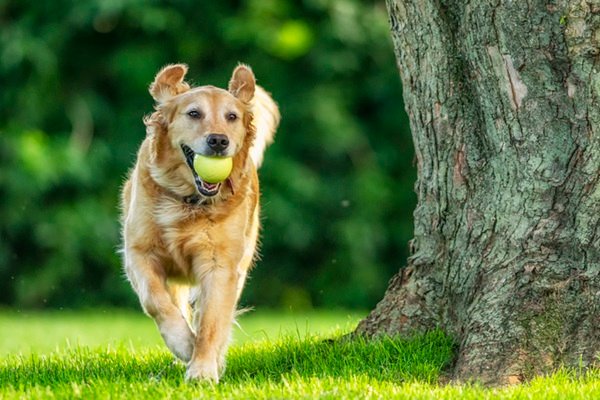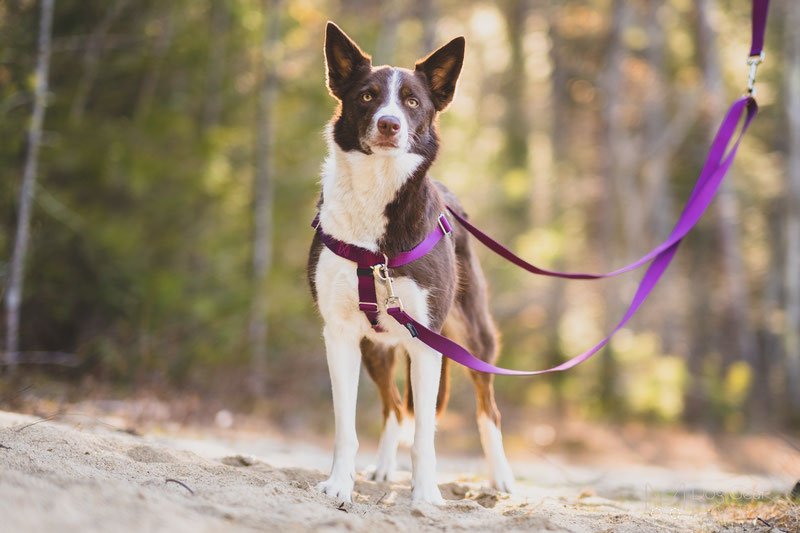
Have you ever caught your dog munching on grass during your daily walk or in the backyard? You’re not alone! It’s a surprisingly common behavior that leaves many pet owners puzzled.
In this article, we’ll break down the real reasons why dogs eat grass — and when you should worry.
🐾 Is It Normal for Dogs to Eat Grass?
Yes! In most cases, dogs eating grass is considered completely normal behavior. Studies show that nearly 79% of dogs occasionally nibble on grass, even if they are well-fed and healthy.
But why do they do it? Let’s explore the possibilities.
🐾 1. Natural Instincts and Ancestral Behavior
Dogs are descendants of wild canines who often ate plant material, including grass, as part of their diet. This behavior might simply be a leftover survival instinct from their wolf ancestors, who consumed plants for fiber and digestion.
🐾 2. Dietary Deficiencies
Some experts believe dogs eat grass because they might be lacking certain nutrients or fiber in their regular diet. Grass can help:
- Aid digestion.
- Act as a natural source of fiber.
- Ease constipation.
💡 If your dog is eating grass frequently, consider upgrading their diet or adding a fiber-rich supplement.
🐾 3. Soothing Upset Stomachs
Many dogs instinctively eat grass when their stomach feels unsettled. Grass blades can tickle the throat and stomach lining, often causing them to vomit and get rid of whatever was bothering their tummy.
If you notice your dog eating grass and vomiting regularly, consult your vet.
🐾 4. Boredom or Stress
For some dogs, munching on grass can be a sign of boredom or anxiety, especially when:
- They are left alone for long periods.
- They don’t get enough physical exercise.
- They lack mental stimulation.
Enriching your dog’s environment with interactive toys can reduce this habit.
🐾 5. Grass Just Tastes Good!
Sometimes the simplest explanation is the right one — your dog might just like the taste and texture of fresh grass. This is especially true after rain, when the grass is softer and more aromatic.
🐾 When Should You Be Concerned?
While occasional grass eating is usually harmless, you should watch for:
- Excessive grass eating paired with vomiting.
- Signs of lethargy or appetite loss.
- Pesticides or chemicals on the grass (always check!).
If any of these occur, contact your veterinarian immediately.
🐾 How to Redirect the Behavior
If your dog’s grass habit becomes excessive, here are a few solutions:
- Offer High-Fiber Dog Food: Some premium dog foods contain enough fiber to satisfy their natural cravings.
- Interactive Puzzle Toys: Great for mental stimulation and reducing boredom.
- Dog-Safe Plants or Grasses: Growing pet-friendly grass indoors can offer a safe alternative.
🐾 Final Thoughts
In most cases, dogs eat grass out of instinct or boredom — not because they’re sick. But keeping an eye on their diet, environment, and overall health will ensure your furry friend stays happy and safe.
🐾 💡 Recommended Product:
👉 “Zesty Paws Probiotic Bites” — Support your dog’s digestive health and reduce the urge to eat grass naturally.
✅ Fiber-rich, vet-approved, and dogs love the taste!












